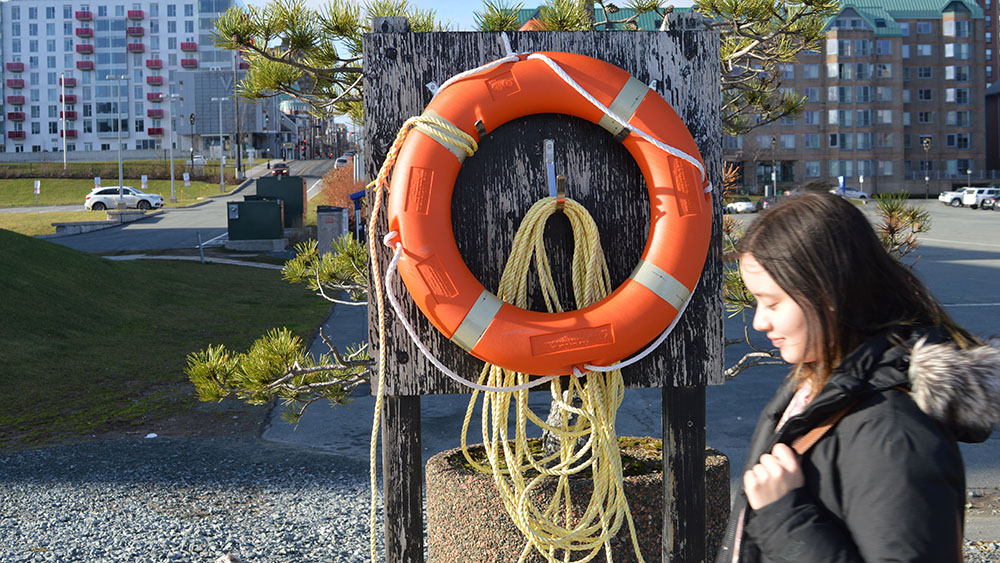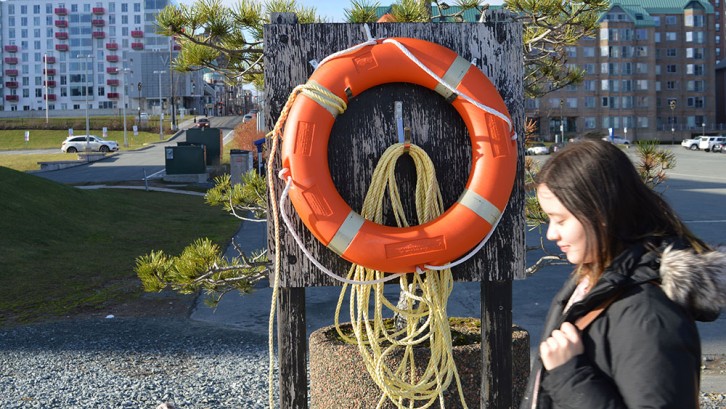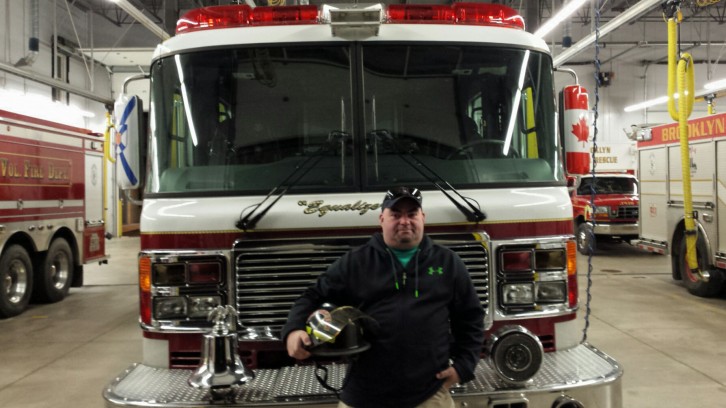Mental Health
Former paramedic crowdfunds for podcast to talk about PTSD
‘It’s time to have a chat,’ says Sean Conohan

caption
Many first responders don't talk about their mental health. Now, Sean Conohan is sending out a lifeline.
caption
Many first responders don’t talk about their mental health. Now, Sean Conohan is sending out a lifeline.Sean Conohan knows that first responders don’t ask for help – they’re too focused on saving other lives. So he’s bringing the help to them.
For 17 years Conohan made his living as a paramedic, seeing things that many can’t imagine. But eventually the repeated trauma took its toll. After one call in 2013 made him break down, he found it harder to separate his life at home and the calls he responded to every day.
Due to the worsening symptoms of post-traumatic stress disorder (PTSD) Conohan made the decision to change careers in March of 2014.
“I’ve seen many friends and co-workers who have gone through this,” he said. “And they end up physically changed or broken to the point where they can’t work anywhere.”
Conohan said he wants to change that. He’s in the final stages of creating the UpTalk Podcast, a regular series that will try to educate and change the perception of mental health within the first responders community.
He plans to launch the podcast in January, but first he says he needs to raise $3,000 to purchase recording equipment and editing software. To try and cover the cost, he has a started a Kickstarter campaign.
As of Monday morning he’s reached $1,000 –a third of his goal.
PTSD and the first responder’s mindset
Dr. Robin McGee is a clinical psychologist based out of Port Williams who specializes in treating PTSD. She provides her expertise to emergency medical services, the military and other private clients.
McGee has agreed to join UpTalk as a regular contributor so that she can provide a clinical perspective on mental illness.
McGee says first responders are more prone to PTSD because they see gruesome and shocking things so regularly. Repeated exposure means a higher likelihood for developing PTSD symptoms.
“Research would that suggest that 30 per cent of first responders have or experience post-traumatic stress disorder and associated symptoms,” she said. “That’s compared to two per cent of the general population.”
Conohan believes the reason the rate is so high among first responders is that they like to help people, but they don’t always help themselves.

caption
Sean Conohan is a former first responder and hopeful podcast host.“We don’t like to talk about weaknesses,” he said. “That’s why a lot of first responders fall through the cracks.”
McGee says a high number doesn’t mean hope is lost. Treatment is always possible. The most important part is to start the conversation. She says as people have begun addressing mental health issues, first responders have become more open to talking about their own.
“There is more permission all the time to talk about this openly and acknowledge that this is reality for people who I consider to be the best and bravest in society, the people who are out there trying to keep us safe, and happy and well.”
Support from within the community
Vince Savoia is the founder and executive director of the Tema Conter Memorial Trust, an organization that advocates for first responders with PTSD. He’s also a former paramedic and lives with the effects of PTSD. Savoia said the UpTalk podcast is a good idea for first responders and for the general public.
“I believe awareness allows us to normalize mental health as a whole and hopefully it will encourage or inspire those individuals who might be sitting on the fence, to actually ask for help,” he said.
In 2015, according to figures by Tema, 32 first responders and nine military members have died by suicide in Canada.
Conohan says those numbers are shocking but they reflect what he saw during his career.
“I’ve known of at least three co-workers that have committed suicide while I was on duty,” he said. “I think it’s totally unnecessary with proper support from peers, proper support from employers, from government, as well as acknowledging yourself that you need help. I think with all those things in place properly that we can avoid those situations.”

caption
First responders include members of the police services and emergency medical services.Conohan says while the UpTalk podcast will be a side project for now, he hopes that one day he’ll get to do it as a full-time job. His goal is to have a company like Bell, which runs the Let’s Talk program against mental illness, take notice of his campaign.
But for now, Conohan says it’s time to have a chat.
“Being out of that career left a void and one that I wanted to fill by helping other first responders like me – before they become like me – get educated about mental health and post-traumatic stress disorder,” he said.
About the author

Alexander Quon
Alexander Quon is a freelance journalist from Saskatchewan with an interest in political reporting and data journalism. He's currently working...
